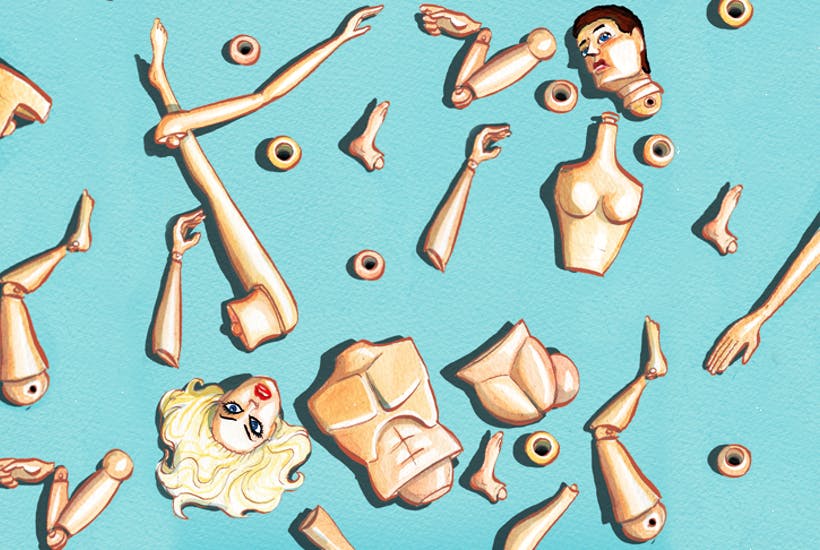It’s House of Lords reform, Jim, but not as we know it. Matilda Simon has applied to contest the next by-election for hereditary peers, in the hope of taking her hereditary seat as Baron Simon of Wythenshawe. Matilda, Lord Simon? Here, in one story, is a positively combustible mix of the 21st and 11th centuries.
Matilda began life as Matthew Simon – becoming on the death of her (then his) father the second Baron Simon of Wythenshawe. But she has since transitioned and become Matilda Simon. And the Lord Chancellor last week approved her claim to the peerage and therefore gave her permission to stand the next time a seat becomes vacant among the hereditaries in the Lords. (That hereditary peers now have to stand for election is the peculiar result of the half-grasped nettle of Lords Reform.)
At the risk of seeming crudely reductive, and with no disrespect to Matilda Simon, this is bonkers
At the risk of seeming crudely reductive, and with no disrespect to Matilda Simon, this is bonkers. Whichever side of the trans debate you stand on – whether you think that biological sex is an immutable characteristic that needs recognition, or that a self-declared gender identity is enough to make you a woman in fact as well as in law – it is surely impossible to have it both ways. If Matilda Simon is a woman, she doesn’t qualify to inherit a male peerage. Indeed, if she’s a progressively minded person you might wonder why she’s so keen to take advantage not only of a hereditary membership of the upper house, but of the still more reactionary custom of male primogeniture. In so doing, be it noted, she leapfrogs her elder sibling Margaret – who as a natal woman is unable to inherit the title.
She is able to do so because of a peculiar clause in the 2014 Gender Recognition Act, which allows for an exception stating that gender reassignment ‘does not affect the descent of any peerage or dignity or title of honour’. This is an odd provision for the framers of the Act to have made, but it wasn’t an oversight. If I understand David Lammy’s explanation of it in the debate at the time correctly, it was intended to avoid pre-empting questions around male primogeniture itself when it came to Lords reform. Noting that trans people are a small percentage of the population and hereditary peers an even smaller one, he said: ‘I do not expect this exception (…) will frequently occur.’ In other words: let’s not open that can of worms – and let’s just hope it doesn’t come up. Well, it has.
It would, I think, be more possible to have sympathy for Matilda Simon’s position were she to have found herself (as she at least titularly did) having inherited her father’s title as a matter of course – and having then transitioned wishing to be called ‘Lady’ rather than ‘Lord’, or simply allowing the title to lapse as a small price to pay for living as the woman she knew herself to be. But she appears to have taken an active decision to put herself forward for a place in the House of Lords – which not only implicitly endorses the principle of male primogeniture but asserts her right to that place as a natal man. You could take the view that the whole situation exposes the absurdity of a feudal system of privileges in the 21st century – and there would be something in that – but to resolve it in this way isn’t a way of subverting the system but, perversely, of reinforcing it.
For a hereditary peer to take a place in the upper house on the grounds of their chromosomal sex, while enjoying every legal privilege and protection accorded to the gender with which they now identify, is a prime instance of the Johnsonian doctrine of cakeism. The very principle of hereditary peerage – to enshrine power through an immutable accident of birth — is directly at odds with the identitarian notion that you can be who you damn well please, and it’s nobody’s business but yours. You kinda have to pick your horse.
It is the frequent, and often persuasive, complaint of gender-critical feminists that the most uncompromising positions on trans rights exude male entitlement: that women should wheesht, that debate on competing rights-claims is to be stigmatised as ‘transphobia’, that the language natal women use to describe their own experience and to organise as a sex-class may be systematically expunged by fiat, and that male-bodied people should have unqualified access to female spaces on no more than their own say-so. It’s a bit pungent, then, that if Lord Simon becomes the first transwoman in the House of Lords she will do so, quite literally, as a result of male entitlement.
If she really wanted to strike a blow for equal rights, it seems to me, she would petition the Queen not to be officially gazetted as Baroness Simon, but to allow the title to be transferred to her older sister. Gender-neutral primogeniture in the hereditary peerage isn’t exactly the dream of liberty and equality – but it’s a baby-step in that direction.







Comments